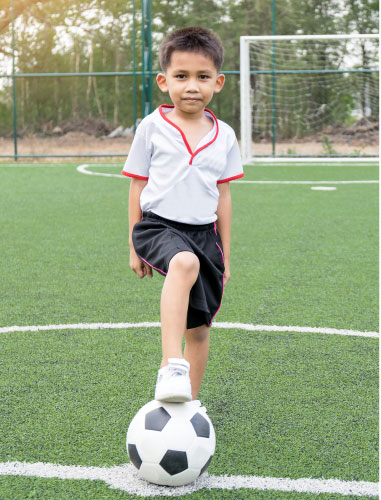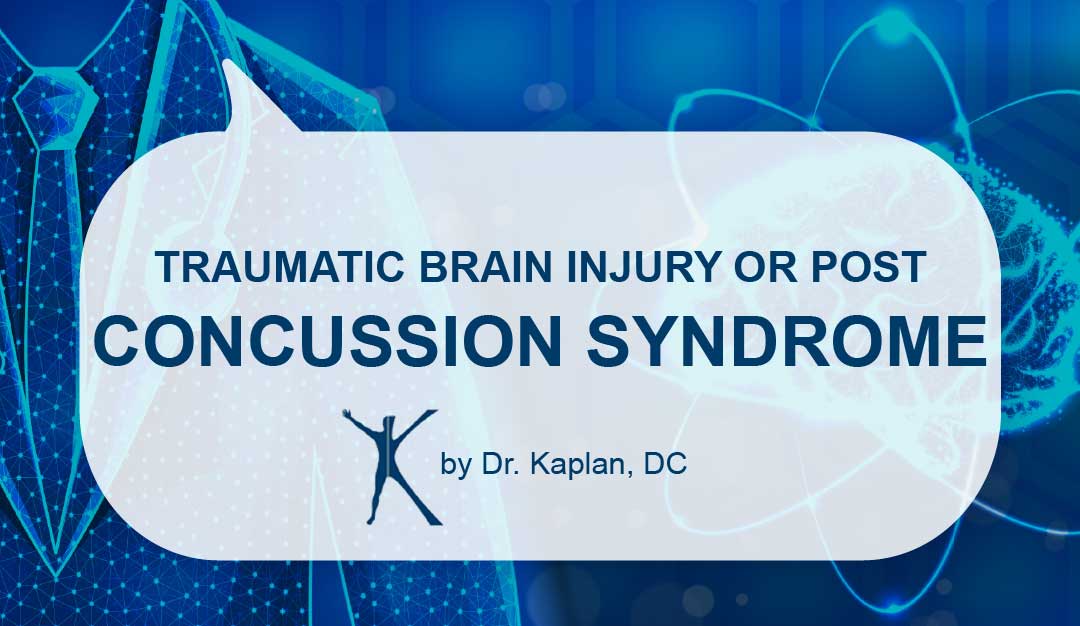Brain dysfunction that occurs from some sort of head injury or other physical trauma is very common. There are many ways someone might sustain a brain injury leading to Post-Concussion Syndrome. There are a variety of ways that these injuries can affect life afterwards. Our goal is to help spread awareness about how these injuries can impact patients. We want to create a deeper understanding to help people that suffer from a brain injury through applied neuroscience and neuroplasticity.
 Many people think that concussions and brain injuries only occur when someone sustains a blow to the head, but they can happen with less obvious impacts as well. For instance, it can occur in a small car accident from slight whiplash. There are brain injuries called “coup contrecoup” where the brain has been tossed around inside the skull and a “bruising” injury occurs to the opposite side of the brain. Musculoskeletal injuries and structural or postural issues from poor phone or computer habits can cause strain or torsion in the artery in the neck. This can lead to decreased blood flow to the brain resulting in dizziness or lightheadedness. Other musculoskeletal injuries include straining the muscles in the back, shoulders, or neck that can pull on the skull, causing pain and headaches.
Many people think that concussions and brain injuries only occur when someone sustains a blow to the head, but they can happen with less obvious impacts as well. For instance, it can occur in a small car accident from slight whiplash. There are brain injuries called “coup contrecoup” where the brain has been tossed around inside the skull and a “bruising” injury occurs to the opposite side of the brain. Musculoskeletal injuries and structural or postural issues from poor phone or computer habits can cause strain or torsion in the artery in the neck. This can lead to decreased blood flow to the brain resulting in dizziness or lightheadedness. Other musculoskeletal injuries include straining the muscles in the back, shoulders, or neck that can pull on the skull, causing pain and headaches.
Brain injuries don’t just cause pain and headaches. They can cause or lead to other symptoms such as dysautonomia, in which people are in a fight-or-flight mode all the time. People might also experience increased stress, dizziness, insomnia, anxiety, as well as linguistic issues. Symptoms tend to be more severe if there are pre-existing health problems. CTE and Post-Concussion Syndrome are very complex disorders that can last for weeks, if not months or years after a concussion. It is important to understand that a patient who suffered a concussion or brain injury can face diverse types of symptoms. Many people have to take significant amounts of time off from school or work. Memory, focus, and energy can decrease making studying or reading a challenge. For some patients, light and sound sensitivity make it difficult to leave the house. Many patients also suffer from insomnia and digestive problems.
 Adults are more likely to seek help for head injuries, but unfortunately parents may not know if their child has had a concussion. Sometimes the child doesn’t tell their parents or another adult that they got hit in the head. They may hide their symptoms so they can continue to play, or to avoid being benched at a sports game and sent home. If your child plays sports and starts getting headaches, dizziness, double vision, brain fog, anxiety, depression, anger, sleep problems, fatigue, or difficulty with concentration, ask some questions about hitting his or her head. If they’ve hit their head, even if it’s a very small hit, it’s important to get the proper concussion evaluation and compare it to the baseline testing. With baseline testing, there’s never a guess of what happened to the brain. We’ll know exactly what’s wrong and how to fix it. This allows the child to get back on the field or to school without physical, social or cognitive effects. Without baseline testing it’s harder to determine what damage has been done making treatment much harder and less effective. There’s no reason anyone should suffer from concussions when these injuries are totally preventable.
Adults are more likely to seek help for head injuries, but unfortunately parents may not know if their child has had a concussion. Sometimes the child doesn’t tell their parents or another adult that they got hit in the head. They may hide their symptoms so they can continue to play, or to avoid being benched at a sports game and sent home. If your child plays sports and starts getting headaches, dizziness, double vision, brain fog, anxiety, depression, anger, sleep problems, fatigue, or difficulty with concentration, ask some questions about hitting his or her head. If they’ve hit their head, even if it’s a very small hit, it’s important to get the proper concussion evaluation and compare it to the baseline testing. With baseline testing, there’s never a guess of what happened to the brain. We’ll know exactly what’s wrong and how to fix it. This allows the child to get back on the field or to school without physical, social or cognitive effects. Without baseline testing it’s harder to determine what damage has been done making treatment much harder and less effective. There’s no reason anyone should suffer from concussions when these injuries are totally preventable.
One of the most common misconceptions regarding concussion or head injuries is that the best recommendation is to rest. However, if you sustain a head injury, the latest research shows that too much rest can prolong recovery. The best way to handle a head injury is to participate in a brain rehabilitation program, such as the one offered at Kaplan Brain & Body. During these brain rehabilitation programs, we improve the function of the brain specific to the areas that are damaged during the injury. It’s sort of like physical therapy but for the brain. This type of treatment protocol may help reduce symptoms such as headaches, dizziness, pain, brain fog, fatigue, sleeping difficulties, troubles with focus, depression, and anxiety. We also have diagnostic equipment such as qEEG for brain mapping and a VOG to discover the actual dysfunctions of the brain. This advanced technology is non-invasive, has no radiation, and tells us more information than a still picture like a MRI or CT scan.
If you’re interested in evaluating your brain to see if you have or ever had a brain injury, please call our office at 201-261-2150 to set up an appointment. To show our commitment to the community, we’re offering a complete neurological evaluation using all the latest diagnostic equipment for only $97 to the first 7 people that call or email info@kaplanbrainandbody.com. This is normal $300 so take advantage of the amazing offer. Remember at Kaplan Brain & Body, we want you to function better, feel better, and live better.

